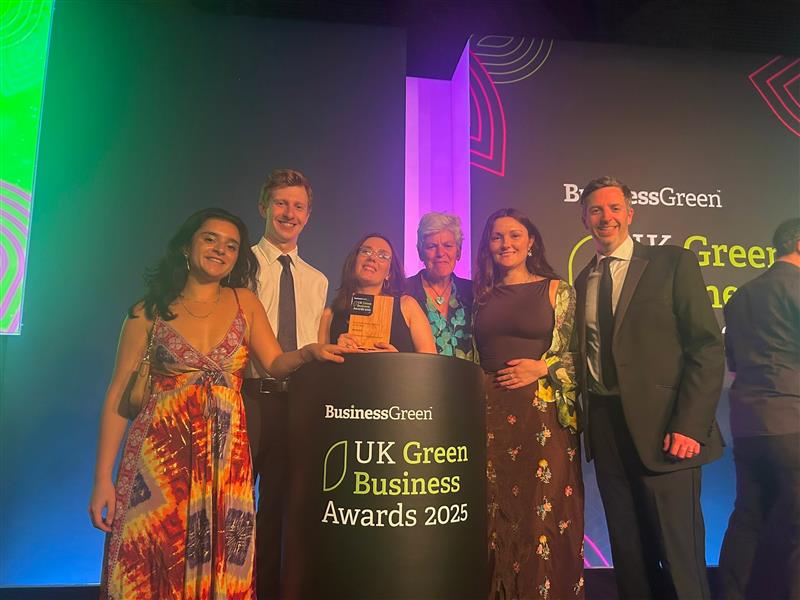Is your renewable energy tariff as green as you think?
Suffering from eco-anxiety but don’t know how to make a difference? You’re not alone. Recent research from Friends of the Earth and Good Energy has discovered that over two thirds of Brits are prepared to make lifestyle changes to live more sustainably, yet 42% don’t know what actions to take.

Supported by Environmental Scientist, Dr Alexandra Jellico, the campaign outlined the best things to do to cut your carbon footprint. One of the easiest and most impactful ways to green your lifestyle is to switch to a 100% renewable energy supplier.
In fact, the average household could cut more than 4T of carbon emissions from their footprint every year if they switched to 100% renewable energy – more than the emissions of four flights from London to New York.
Most energy companies now offer ‘100% renewable’ tariffs, which, on the face of it, seems like great news. But sadly, this isn’t always the case. Many of these tariffs are not what they seem. A loophole in the system means that energy companies can buy cheap certificates to match their customers’ energy use make their fuel mix disclosure appear greener than it is.
REGO certificates are issued to generators for every MWh of electricity produced. In buying them, an energy company can offset the electricity they buy from fossil fuel sources.
REGOs can be bought for as little as 50p each. Considering the average household uses 3MWh a year, this means that a company can claim to be suppling green power to your home for as little as £1.50 a year – despite the average annual electricity cost being £699. That £1.50 is hardly going to support the extra 100GW of renewable energy needed by 2050 to power our zero-carbon society.
It also raises the question, if you are paying for a ‘green’ tariff and only £1.50 is going towards actual clean energy, where is the rest going? Well, there is a cost for using power on the network, operational costs and VAT, but on average 32% of the average bill should be going directly on wholesale generation. That means the renewable industry is missing out on more than £200 a year for every customer on a fake renewable tariff.
So, to help you navigate the renewable energy minefield, we’ve developed three simple tips for finding a true 100% renewable tariff:
1. READ THE WHICH? REPORT
Consumer champion Which? recently investigated 355 100% renewable energy tariffs offered by UK energy companies. It found that, while half offered some renewable credentials, many were left wanting in terms of their commitment to a truly green energy supply.
The Which? report includes a clear rating system of pale, mid and dark green to rank utility companies’ commitment to renewable energy. Aspects such as ongoing support for renewables and commitment to the UK’s transition to net-zero all factor in to the eventual ranking and companies championing truly green energy, such as Good Energy, are awarded with the dark green rating.
2. ASK YOUR SUPPLIER
Energy companies have to tell you if they’re using REGOs. If a supplier’s website says its 100% renewable energy tariff is backed by REGOs then they aren’t paying a fair price and your bills aren’t supporting new UK renewables.
Companies that do supply true 100% renewable energy will be able to direct customers to information about the generators they buy from and their own renewable energy projects.
3. ENERGY TARIFFS THAT REFLECT BEHAVIOUR
Companies that achieve Which?’s dark green rating are committed to sourcing and supporting green energy. Their energy tariffs reflect their commitment to paying a fair price for renewable energy and supporting investment in new infrastructure to secure a UK net-zero economy.
Switching energy supplier is quick, easy and a great way to make a positive impact on your carbon footprint. Show your support for sustainability by seeking true 100% renewable energy in your home and choosing to participate in a net-zero future.
Greenhouse PR works with organisations and leaders who are pioneering climate action. Whether it’s energy, food, fashion, finance or farming, if you’ve got a great story and need our help to tell it, get in touch with the Greenhouse team on 0117 214 1250 or email info@greenhousepr.co.uk.


